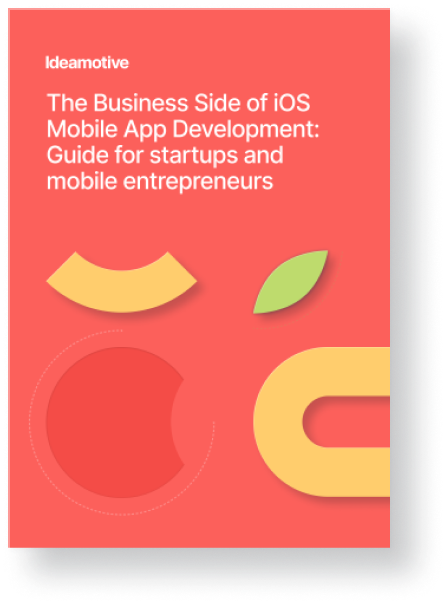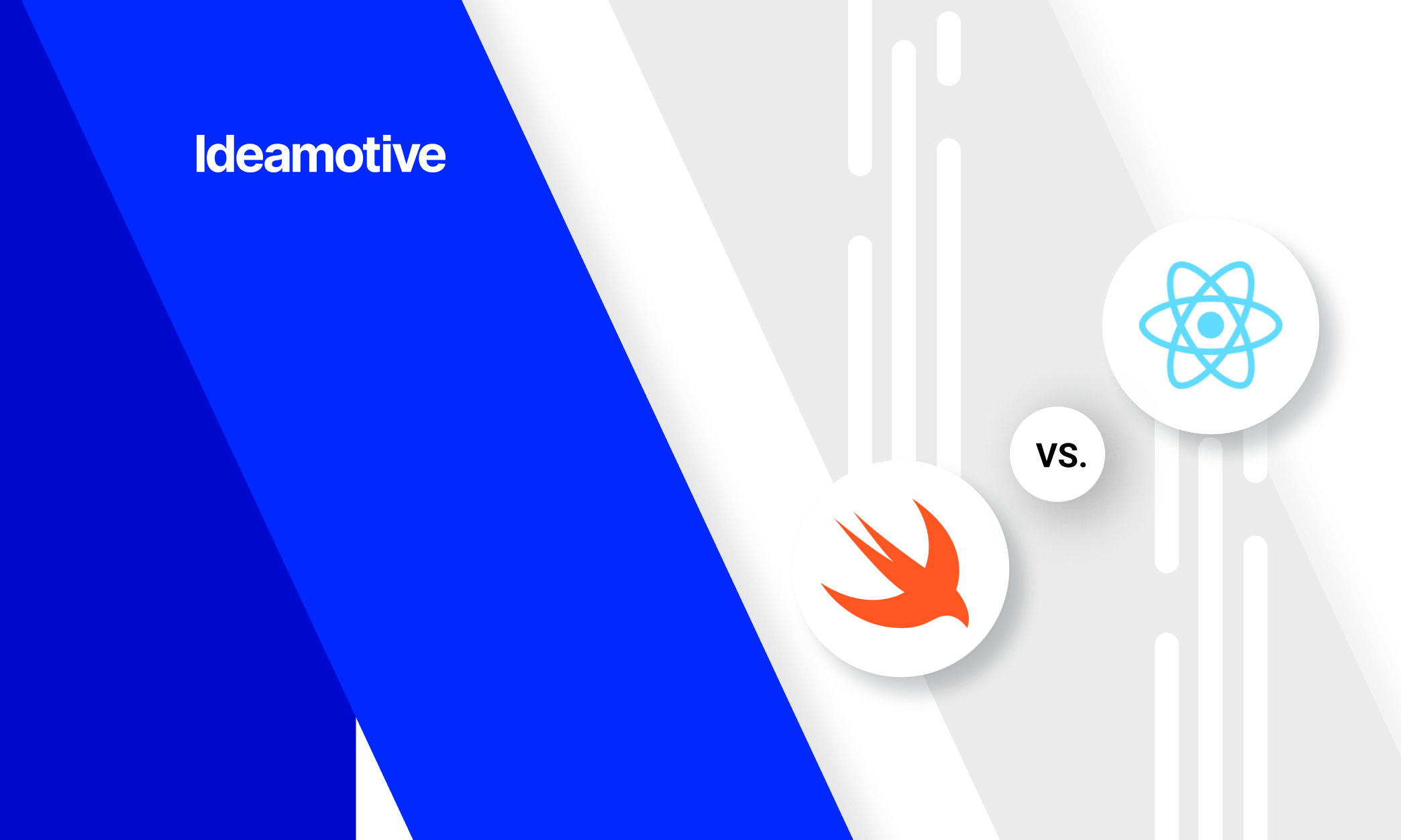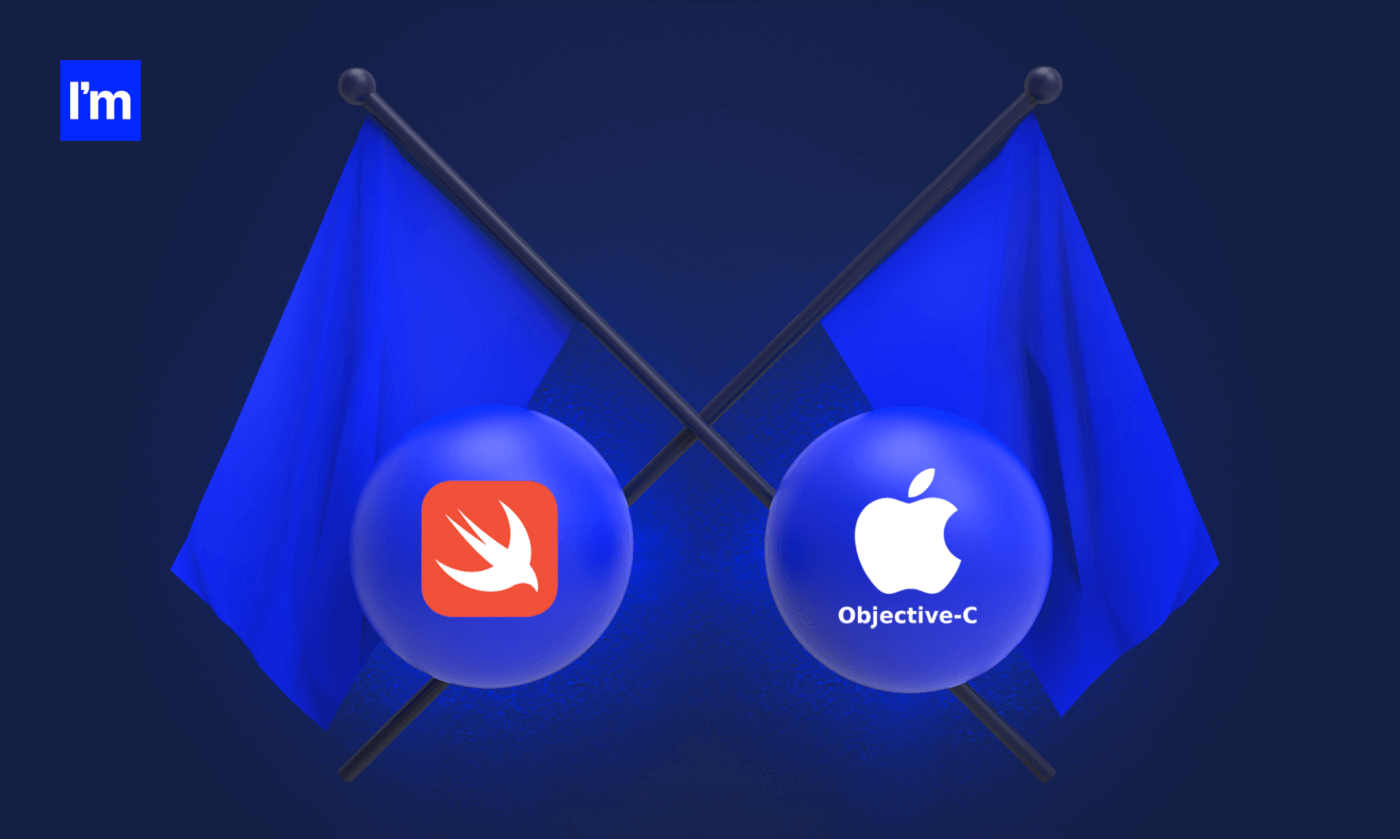In the current landscape of 2023, mobile applications have become virtually indispensable for the majority of online businesses. Recent data from StatCounter reveals that a significant 58% of online connections are established through mobile devices, surpassing both tablets and computers. Additionally, this data indicates that nearly a third of these connections, approximately 29%, are facilitated through iOS devices. This underscores the growing dominance and importance of mobile platforms in the digital realm.
Therefore, we have no doubts — iOS app development is certainly something worth investing in. If you are wondering which iOS development language is best for this purpose, you are in the right place.
In this article, you will find all the most essential information on this topic, including:
- key issues to remember before you start building iOS apps,
- the best programming languages for iOS development,
- the best mobile cross-platform tools that will enable you to develop apps for several operating systems simultaneously.
5 things that you need to remember before start working on your iOS app
Developing a good, comprehensive iOS app is a big deal that needs to be well analyzed and planned. That is why we have prepared a short but handy list of things you need to remember if you want your app to succeed.
1. Define the main purpose
Before you start, you should consider why you decided to build your app and try to answer a few simple questions such as:
- Why am I planning to build this app?
- What user needs will your application meet?
- Are there similar solutions on the market? If so, what will be the unique feature of my product?
When you answer these questions, not only presenting them to users will become easier, but you'll also be able to determine further plans for future app development better.
2. Conduct market research
The next step is critical, and still, many entrepreneurs forget about it. To make people want to download your app, you need to get to know them better in the first place.
You can do a survey or use customer segmentation and then make a profile of the average target user based on nationality, age, sex, or other criteria.
Such actions will allow you to create customized marketing campaigns and, as a result, maximize the number of downloads.
3. Prepare a detailed plan for your iOS app development
If you have successfully completed the first two points, you can move on to planning.
It should be as detailed as possible and contain all necessary information. Below you will find a list of questions you need to ask yourself when preparing such a plan:
- What technology will be the best for developing this application?
- What are the details of user interfaces?
- How will you measure the success of your application?
- What activities will allow you to bring your app idea to reality?
- What security issues should you take into account?
- Do you plan to develop versions for other operating systems in the future?
- What goals do you want to achieve?
4. Take into account compatibility with multiple iOS versions
When developing an iOS app you need to remember that not all iPhone users regularly update the system on their devices. So if, for example, your app is only compatible with the latest version, while your user is using an older one - he or she may be disappointed and delete the app immediately.
That’s why you should focus on preparing your application so that it is compatible with all possible versions of the system. It will take more time, but believe me - it will be easier than convincing disappointed users to install it again.
5. Evaluate your internal capabilities to build this app
The time and cost of developing an iOS app depend on its functionality and level of complexity. It is usually a job for a few specialists, including iOS Developer, Frontend Developer, UX Designer, UI Designer, Graphic Designer, and even QA Developer and Project Manager.
Moreover, this team should have a good knowledge and understanding of the market and experience developing this type of app. Therefore, at the very beginning, you should decide whether you want to involve your in-house team or maybe you should outsource your iOS app development.
And if you're looking for a more detailed list of things to remember, read the following articles:
- How to Make an iOS App For Your Business?
- 10 Best Practices In iOS App Development To Follow
Top 7 technologies for iOS app development
When you find the answers to all of the questions listed above, it is time to choose the iOS development language in which your application will be written. Why is this so important?
Because if your app is successful, you will want to expand it with new features and perhaps introduce other devices. That's why it's so important to define your long-term plans to decide which programming language will enable you to achieve them.
Below we have listed the best technologies for iOS app development. You’ll find here both iOS-dedicated and general-purpose languages as well as cross cross-platform frameworks. Check them out and decide which one will be the best for your project.
1. Swift
Swift is a programming language for developing macOS, iOS, iPadOS, watchOS, and tvOS solutions. Apple created it in 2014 as the successor to Objective-C. Swift is designed to work with the frameworks such as Cocoa, Cocoa Touch, and the extensive codebase written in Objective-C for Apple products.
According to the Stack Overflow 2022 Developer Survey, Swift is the 19th most popular programming language globally and is used by 4.9% of developers worldwide.
Swift for iOS development — pros and cons
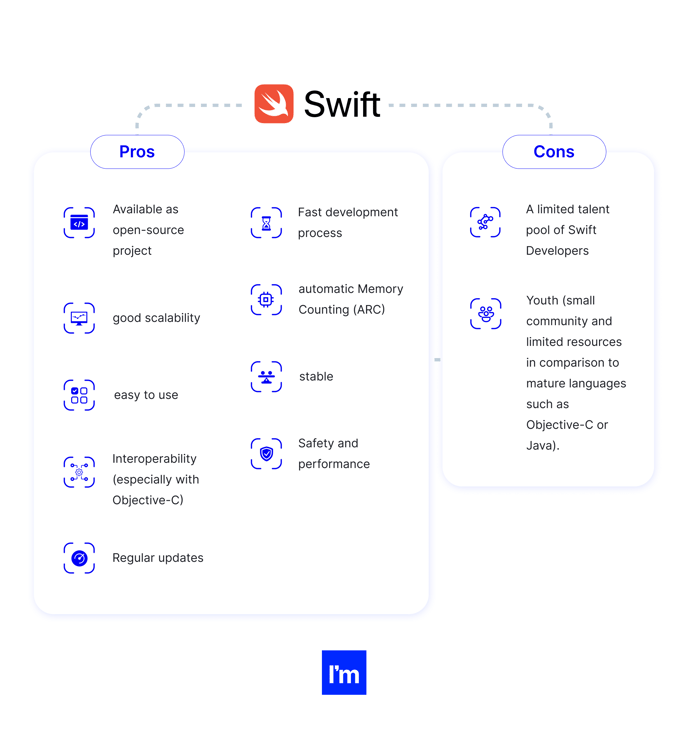
When to use Swift for iOS app development?
If you want to create an application relatively quickly that you can easily expand later, Swift will be a great choice. The language is relatively easy to learn and ensures a fast development process, as well as write safe and reliable code. Moreover, it is regularly updated, so you can easily make any improvements to your application.
2. Objective-C
Objective-C is a language created as an extension of the C programming language with object-oriented programming capabilities.
It was developed in the early 1980s by Tom Love and Brad Cox at their software company Stepstone, formerly known as PPI (Productivity Products International).
It is a general-purpose language, primarily used for programming for Apple's operating systems such as OS X and iOS and their APIs: Cocoa and Cocoa Touch.
According to Stack Overflow's popularity report, Objective-C is ranked 27th, making it three positions lower than Swift. It is currently only used by 2.39% of developers worldwide.
Objective-C for iOS development — pros and cons
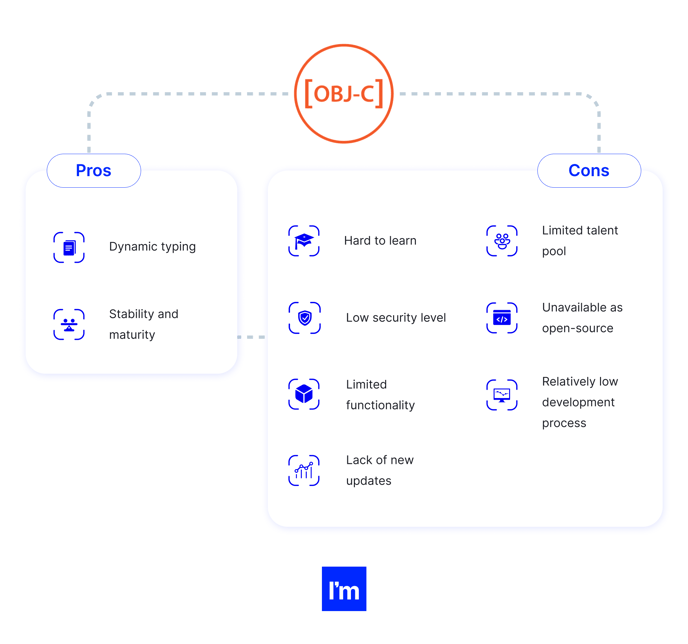
When to use Objective-C for iOS app development?
Comparing Swift with Objective-C, there are few cases where Objective-C will be the better choice. It's a mature language, and maybe even a bit outdated (the last version was released in 2016). Its popularity is declining, so finding developers programming in this language can be challenging.
So when will Objective-C actually be a better choice? You should consider it only if you want to create an app available for all, including older versions of iOS that Swift doesn't support.
3. C#
C# is a high-level, object-oriented, general-purpose programming language. It was created as Microsoft's answer to the Java language. C# is tightly integrated with the .NET platform, which is both a framework and a runtime environment.
C# was developed and is most commonly used to write applications for Windows systems. Still, since the .NET framework came to Linux and Mac systems, it is possible to develop native software in this language for virtually any platform, including iOS.
C# is the 8th most popular programming language globally and is used by 31.4% of software developers worldwide.
C# for iOS development — pros and cons
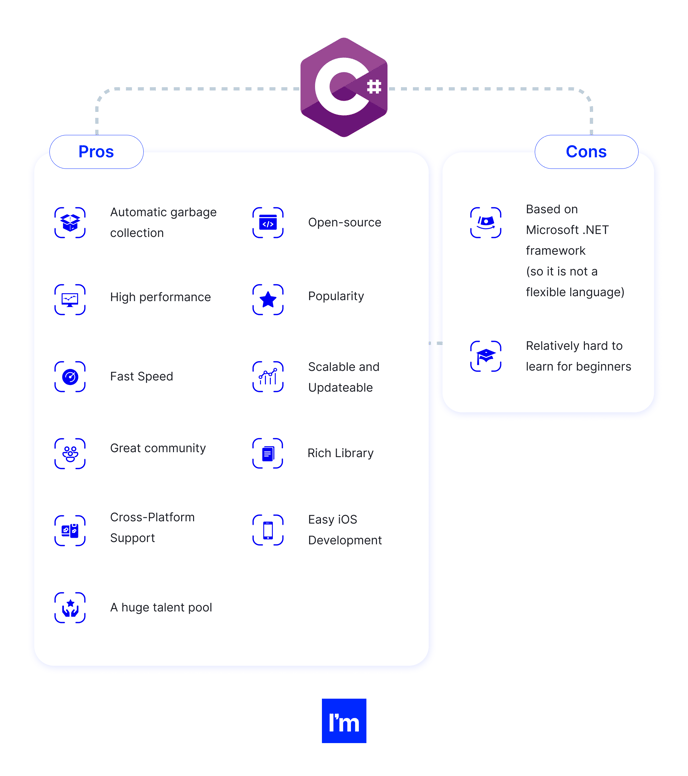
When to use C# for iOS app development?
The key to mobile C# development was creating the Xamarin platform for building Android and iOS apps. It uses Mono — an open-source implementation of the .NET platform that runs on all major operating systems.
This programming language a particularly good choice if:
- you have experienced C# developers in your team,
- you plan to create mobile applications also for Android users.
4. HTML5
HTML5 (HyperText Markup Language 5) is the fifth and currently the last major HTML version — technology used to create and present websites by defining their content's meaning and structure.
Developers usually use it in combination with CSS and JavaScript, and together they are referred to as the "big three of frontend".
Interestingly, thanks to tools such as Apache Cordova or the aforementioned Visual Studio for Mac, knowledge of HTML5 also makes it possible to develop iOS apps.
HTML, together with CSS, ranks as the 2nd most popular technology in 2022.
HTML5 for iOS development — pros and cons
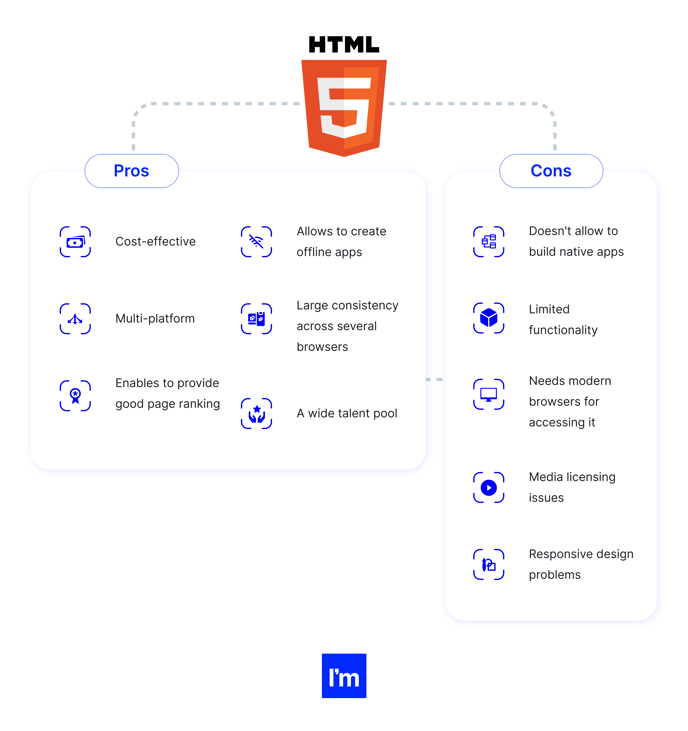
When to use HTML5 for iOS app development?
HTML5 is the right choice if you want to quickly develop a simple iOS application that can also be accessed offline. It is worth considering this choice if you have people in your team who specialize in HTML5 and who will be able to develop such an application.
5. Java
Java is an object-oriented, class-based, and general-purpose programming language. What's important, its code doesn't need recompilation to run on any platform.
Java and is currently used by over 9 million programmers worldwide, which makes it the 6th most popular programming language in the world.
Java is also one of the most preferred languages for Android app development. However, with its wide flexibility, you can also use it to build cross-platform apps.
Java for iOS development — pros and cons
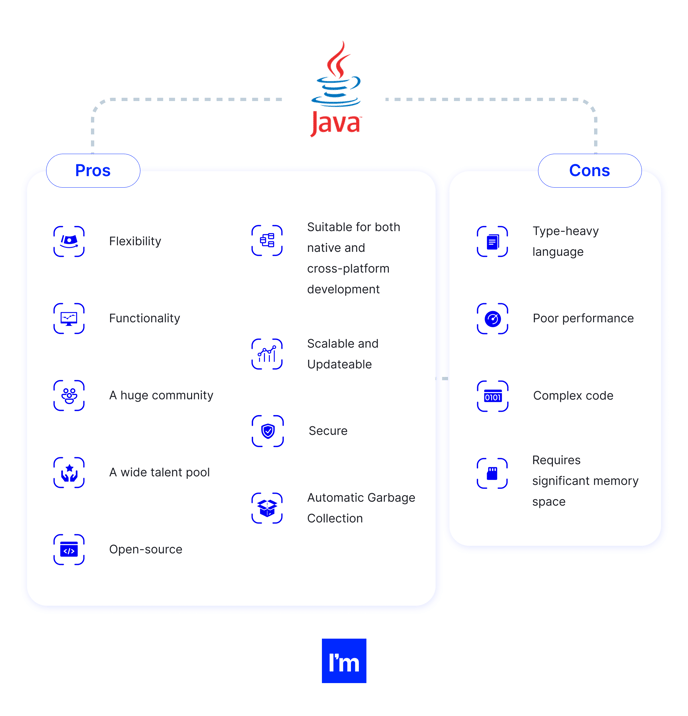
When to use Java for iOS app development?
Despite its popularity and flexibility, Java is not a popular choice when it comes to iOS app development. However, if you already have an Android mobile application developed in Java, you should consider using the same programming language to create the iOS version.
6. React Native
React Native is a cross-platform framework introduced in 2015 by Facebook. Today it is one of the most popular cross-platform tools. It uses JavaScript to create native applications, allowing software developers to build mobile apps using website technology.
It is used by brands such as Facebook, Snapchat, or Instagram, so you can be sure that this solution is worth trusting.
React Native for iOS development — pros and cons
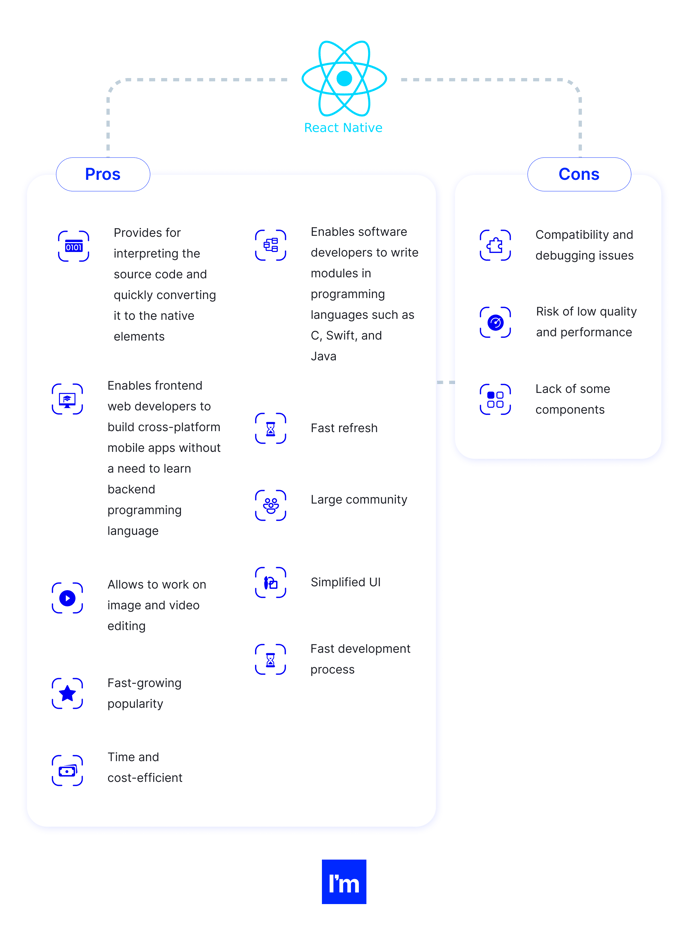
When to use React Native for mobile app development?
React Native is a perfect choice if you want to develop a mobile app for iOS and Android at the same time, and your team includes JavaScript or React Native experts. This solution will enable you to save time and money, and - considering its popularity among the world's most popular mobile apps - you can be sure that it's a proven solution.
7. Flutter
Flutter is a comprehensive app Software Development Kit (SDK), including ready-to-use widgets and tools. It was created by Google in 2015 and officially launched in 2017.
This tool allows to build cross-platform apps, providing Flutter developers an easy way to make visually attractive, natively-compiled mobile, web, and desktop applications using only one codebase.
Flutter for iOS development — pros and cons
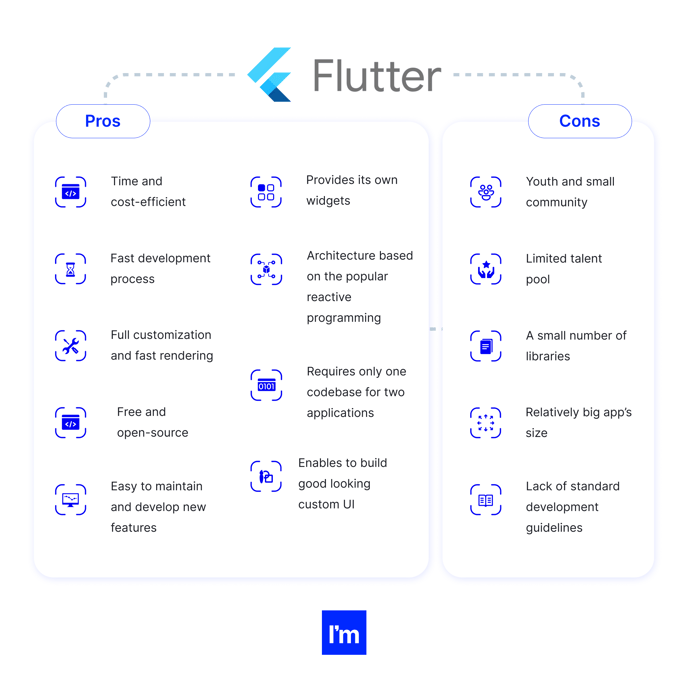
When to use Flutter for mobile app development?
Flutter is worth considering, especially if you want to create not only an iOS and Android app but you also plan to create a desktop and web version.
Moreover, this tool is based on the Dart programming language, so if your team members know this language — it will be the right choice for your company.
Summary
Choosing the best programming language for iOS is an important decision that can have a crucial impact on your idea's success. That's why you should define your needs and expectations and, on this basis, choose the best solution for you.
And if you're still in doubt about which one to choose — here's a short summary of the most important differences between these technologies.
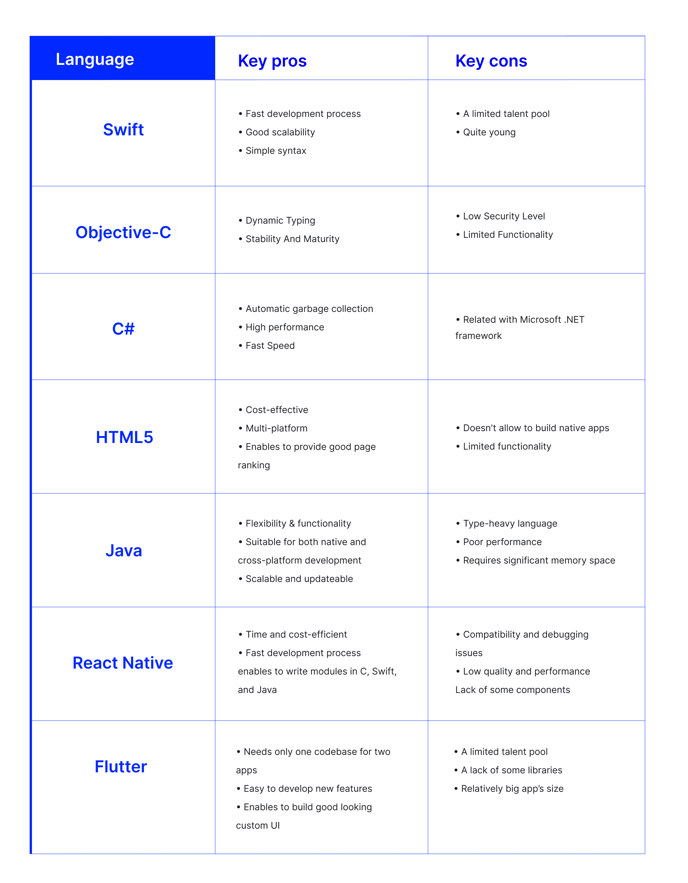
Looking for the right technology for your iOS app and experienced mobile developers who will meet your expectations?
Contact us. In our Talent Network, you will find both mobile consultants and mobile developers specializing in various technologies. Schedule a consultation with us to choose the best solution for you.













